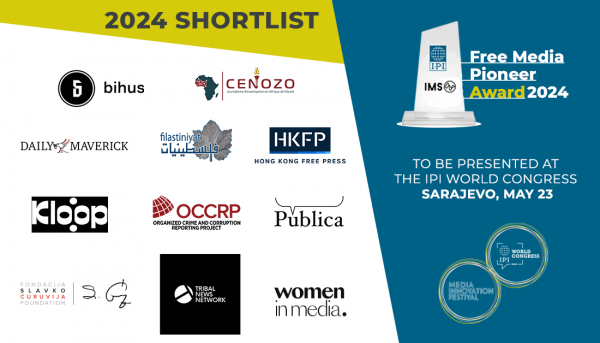Public officials allegedly threatened or assaulted at least two journalists last week in Argentina, continuing a troubling trend that has made the country one of Latin America’s worst press freedom offenders in 2012.
The Argentine Journalists Forum (FOPEA, according to its Spanish acronym) last week “energetically” condemned an Aug. 14 attack on radio journalist and owner Hernán Garcia, who was reportedly threatened with death at gunpoint by a local mayor, Abel Fontenla.
Garcia, of radio FM UNO, told FOPEA that he had agreed to meet with Fontenla outside the community of Sancti Spiritu. However, upon arrival, Fontenla ran to Garcia’s car, put a gun to his head, and threatened to kill him, FOPEA reported. Managing to escape, Garcia said he then ran four kilometres to Sancti Spiritu, where he alerted police.
The journalist was later able to recover audio from the incident. On the tape, a man whom Garcia has identified as Fontenla appears to say, in Spanish, “I came to kill you.” According to FOPEA, the attack may be linked to repeated requests for transparency in Fontenla’s local administration that Garcia has made on his radio show.
Previously, on Aug. 12, Daniela Abrudsky of Canal 12 was physically and verbally harassed by the spokesman of the governor of Córdoba state. According to the Press and Communications Association of Córdoba (CISPREN, according to its Spanish acronym), after Abrudsky asked the governor a question about an ongoing conflict with state workers, the spokesman, Fernando Aimaretto, grabbed her leg and forced her to leave the room.
Aimaretto then told Abrudsky that she “should not ask the governor about that topic” and threatened to cut off her contact with the governor or other provincial officials, CISPREN reported.
As the crises facing journalists in Mexico, Ecuador, and Honduras mount, the escalation of attacks on press freedom in Argentina in 2012 has largely gone unnoticed. In the first five months of this year alone, the International Press Institute (IPI) recorded 39 press freedom violations in the country. Particularly alarming was the fact that public officials were the direct culprit in at least seven of those cases.
In a statement condemning the attack on Garcia, the Argentina Association of Journalist Entities (ADEPA, according to its Spanish acronym) declared, “When attacks [against journalists] come from public officials, their seriousness is enormous. All officials must accept that criticism is an unavoidable consequence of their role, and that every attempt to stifle it automatically eliminates the legitimacy of their office.”
ADEPA added: “The use of a firearm to frighten or wound a journalist is reminiscent of some of the darkest times in our history … the aggression of Abel Fontela is incompatible with his function, must be dealt with by justice and deserves the most energetic condemnation of all cititzens.”
Attacks on the press by public officials are not uncommon in Latin America, particularly in the interior regions of Peru, Brazil, and Argentina. An IPI special investigation earlier this year found that “autocratic regional and local authorities who view investigative reporting as a threat to their otherwise unchecked power” remains one of the biggest obstacles to media freedom in the region.
IPI Deputy Director Anthony Mills said: “The attacks in Argentina on Hernán Garcia and Daniela Abrudsky are emblematic of a quickly worsening press freedom situation. These incidents are completely unacceptable, and need to be taken seriously not only by local governments in Argentina but also by the Kirchner administration itself.”
Mills continued: “In Argentina, as elsewhere in South America, public officials at all levels of government have allegedly harassed and assaulted journalists. We are highly concerned about the effects of this trend on democracy and the free flow of information in Argentina, particularly in the country’s rural areas.”
Argentine President Cristina Fernández de Kirchner herself has come under significant international criticism for her handling of the press. At a meeting in Santiago, Chile, in July, a consortium of organisations including the Inter-American Press Association (IAPA), and the World Association of Newspapers, as well as IPI critised the Kirchner government for its “continual and systematic” harassment of what the government viewed as “unfriendly” media.
Earlier this month, Fernández de Kirchner was accused of blocking a journalist from the opposition Clarín newspaper from participating in a television program for which he had been selected. Also last week, two journalists known for their criticism of the president, Marco Bonelli and Nelson Castro, were the subject of an anonymous poster campaign that derided them as bribe takers and mafia members.


